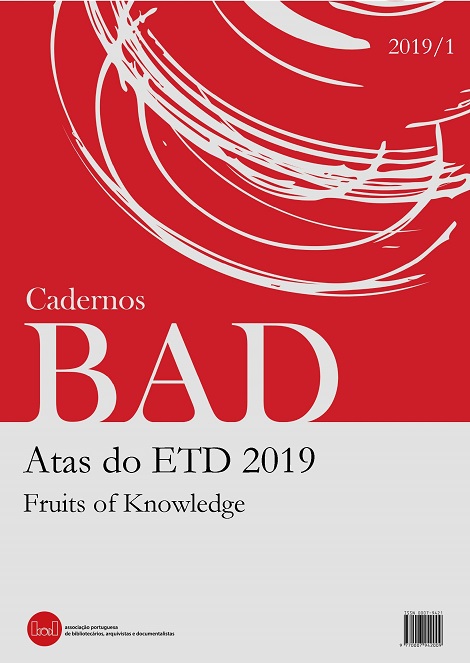Branching out to a larger audience: Botswana International University of Science and Technology (BIUST) library marketing strategies in promoting Institutional Repository
DOI:
https://doi.org/10.48798/cadernosbad.2016Keywords:
Marketing, technology mediated tools, Botswana international university of Science and Technology, library, communication, institutional repositoryAbstract
Faced with the advancement of the fourth industrial revolution whereby users are technology-driven, BIUST library repositioned itself in the financial year 2018/2019 by developing and implementing technology-mediated tools as a means of enhancing service delivery. One of the tools that was developed was an institutional repository (IR) with the intention to store, preserve and disseminate the research output produced by both the university employees and students. Like any other library services, the IR needs to be marketed and promoted for its usage to be maximized. The BIUST library conducts marketing activities to promote and create awareness on both newly acquired services and products and existing ones for full utilization for a better return on investment. This paper, therefore, focuses on the different marketing strategies used by the library to promote the IR, especially the electronic theses and dissertations community for both the internal and external audience and the anticipated impact of these marketing activities.
Downloads
Downloads
Published
How to Cite
Issue
Section
License
Os autores que publicam nos Cadernos BAD:
- Concedem à revista o direito de primeira publicação, mantendo os direitos de autor, de acordo com os termos da Creative Commons Attribution, que permite a partilha do texto com menção obrigatória da publicação inicial nos Cadernos BAD;
- Mantêm o direito de publicar o texto noutros locais (ex.: repositório institucional, capítulo de livro, outra publicação periódica), com menção da publicação inicial nos Cadernos BAD e uma ligação para o sítio na Internet da revista;
- Mantêm a possibilidade e são mesmo incentivados a publicar e distribuir o seu trabalho online (ex.: em repositórios institucionais ou na sua página pessoal) antes ou durante o processo editorial, já que isso pode potenciar interações geradoras de melhoria, bem como aumentar o impacto e a citação do texto publicado (Veja Efeitos do Acesso Livre).


